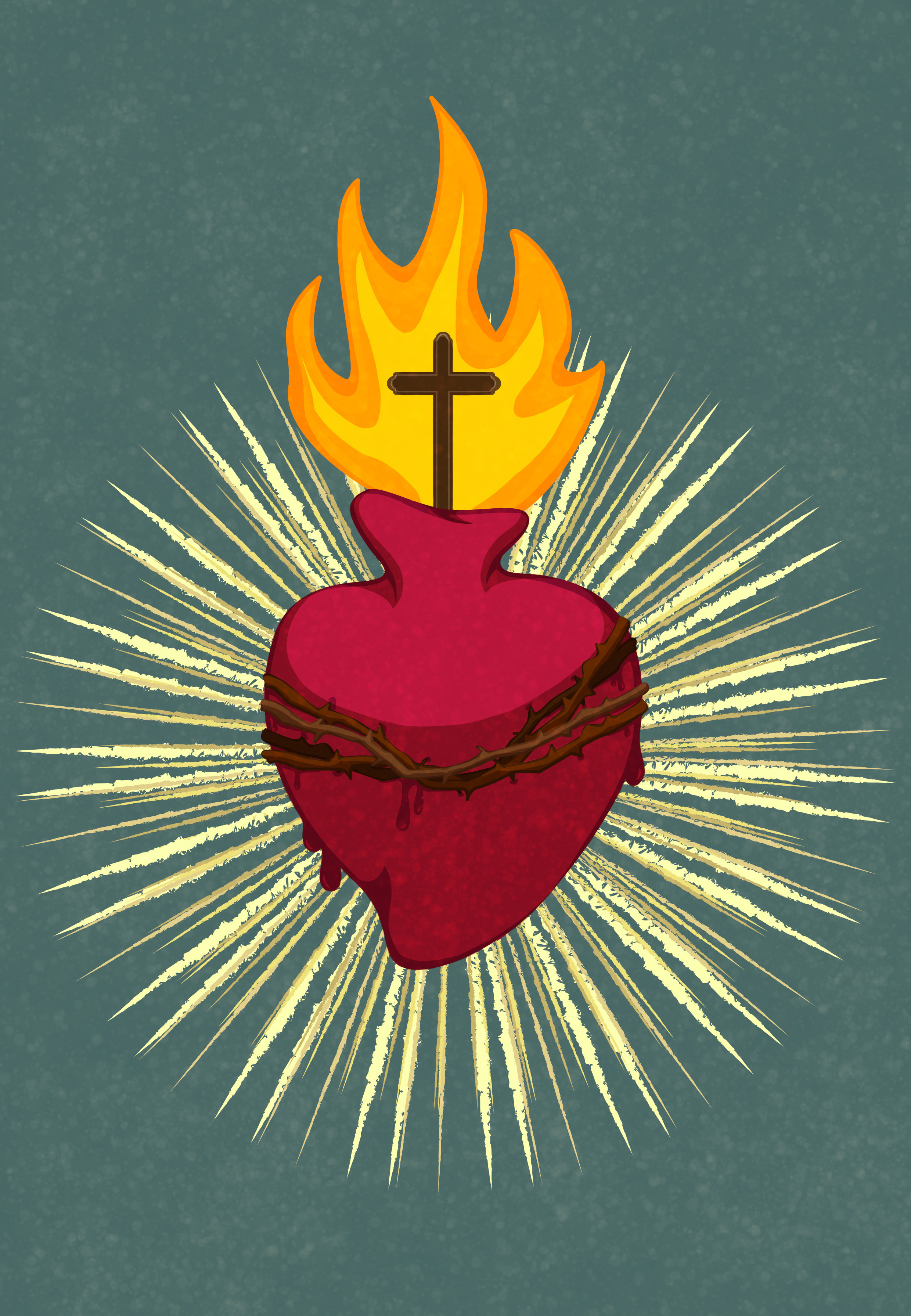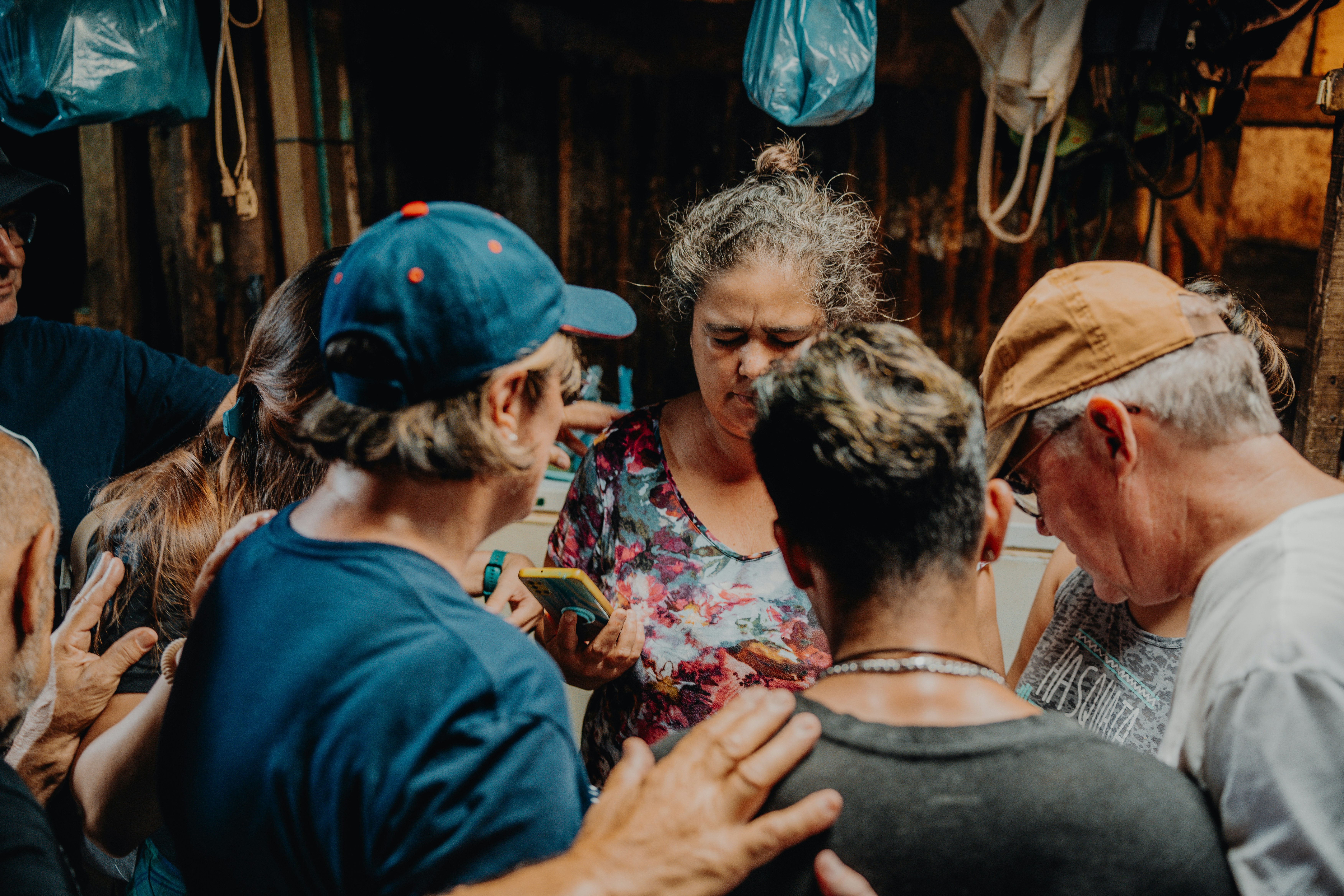Several months ago, our pastor asked my husband and I to mentor couples who are preparing for marriage. As I read through his email, I chuckled to myself, thinking what a coincidence it was. My parents had mentored engaged couples for years. In fact, as a permanent deacon, that was my dad’s main ministry. Since his marriage to my mom was far from perfect, it gave me hope that maybe my husband and I could be of some help to the couples we are assigned to. In fact, perhaps we could be of more help due to our struggles, giving witness to our fidelity to each other despite the ups and downs of life.
Even as we met with our first engaged couple for the first time, my husband was just a couple weeks away from his second major back surgery. Although it would eventually relieve him of some pain, it would also cause him pain. His three month recovery process would have him using a walker, then a cane, all the while wearing a restrictive back brace. He would need help using the restroom and showering, getting out of bed and getting dressed. All the while, I, his partner “in good times and in bad, in sickness and in health” was called to care for him, encourage him and support him.
Jesus never promised it would be easy. He knew the reality of life on Earth. He lived through the hardship. And He promised to help us carry our burdens.
Perhaps one of the heaviest burdens we bear is our sins. We make resolutions, and then break them. We try to be better and then fail. We try harder and then fail again. Perhaps the reason this burden becomes so heavy is because we try to carry it on our own. We forget about the power of prayer and the grace poured out in the sacrament of Confession. God wants to make “our yoke easy and our burden light” but sometimes we fail to call out to Him for help.
We see God’s loving mercy so clearly in today’s readings. In the first reading, God promises to withhold destruction of Sodom and Gomorrah if He were to find only 10 just people therein. In the second reading, Paul reminds us, “even when you were dead in transgressions…he brought you to life along with him” through the forgiveness of sins. In the Gospel, Jesus assures us, ask and you will receive; seek and you will find; knock and the door will be opened to you.”
Time and time again in the Scriptures, God tells us how much he wants to be there for us. Even though the actual weight of our burdens may not change, the fact that He is there by our side, makes them so much lighter. So whether we be living the ups and downs of married life or struggling through an illness or battling with a recurring sin, may we truly believe what we proclaim in today’s Psalm Response: “Lord, on the day I called for help, you answered me.”
Hace varios meses, el párroco nos pidió a mi esposo y a mí que sirviéramos de mentores a parejas que se estaban preparando para casarse por la Iglesia. Mientras leía su correo electrónico me dio risa, pensando en la coincidencia que era. Mis padres habían sido mentores de parejas comprometidas durante años. De hecho, como diácono permanente, ese era el ministerio principal de mi papá. Dado que su matrimonio con mi mamá estaba lejos de ser perfecto, me dio esperanza de que tal vez mi esposo y yo pudiéramos ser de alguna ayuda a las parejas que se nos asignan. De hecho, tal vez podríamos ser de mayor ayuda debido a nuestras batallas, dando testimonio de la fidelidad mutua a pesar de los altibajos de la vida.
Incluso cuando nos reunimos con una pareja comprometida por primera vez, mi esposo estaba a solo un par de semanas de su segunda cirugía grande de espalda. Si bien con el tiempo lo aliviaría un poco del dolor, también le causaría dolor. Su proceso de recuperación de tres meses lo haría utilizar un andador, luego un bastón, todo el tiempo con un corsé ortopédico restrictivo. Necesitaría ayuda para ir al baño y bañarse, levantarse de la cama y vestirse. Mientras tanto, yo, su compañera “en las buenas y en las malas, en la salud y en la enfermedad”, fui llamada a cuidarlo, animarlo y apoyarlo.
Jesús nunca prometió que sería fácil. Conocía la realidad de la vida terrenal. Vivió las dificultades. Y prometió ayudarnos a llevar nuestras cargas.
Tal vez una de las cargas más pesadas que llevamos son nuestros pecados. Hacemos resoluciones y luego las rompemos. Tratamos de ser mejores y luego fallamos. Nos esforzamos más y luego fallamos nuevamente. Tal vez la razón por la que esta carga se vuelve tan pesada es porque intentamos llevarla a solas. Nos olvidamos del poder de la oración y la gracia derramada en el sacramento de la Confesión. Dios quiere hacer “suave nuestro yugo y liviana nuestra carga”, pero a veces no le pedimos ayuda.
Vemos la misericordia amorosa de Dios tan claramente en las lecturas de hoy. En la primera lectura, Dios promete no destruir Sodoma y Gomorra si encuentra tan solo 10 personas justas allí. En la segunda lectura, Pablo nos recuerda que “estaban muertos por sus pecados…Pero él les dio una vida nueva con Cristo, perdonándoles todos los pecados”. En el Evangelio, Jesús nos asegura: “Pidan y se les dará, busquen y encontrarán, toquen y se les abrirá”.
Una y otra vez en las Escrituras, Dios nos dice cuánto quiere estar ahí para nosotros. Aunque el peso real de nuestras cargas no cambie, el hecho de que Él esté a nuestro lado las hace mucho más ligeras. Así que, ya sea que estemos viviendo los altibajos de la vida matrimonial o luchando contra una enfermedad o batallando con un pecado recurrente, proclamamos juntos con el salmista hoy: “te damos gracias, Señor, porque escuchaste nuestros ruegos”.
 Tami Urcia is a midwestern gal from a large Catholic family. As a young adulthood she was a missionary in Mexico, where she studied theology and philosophy. After returning stateside bilingual, she gained a variety of work experience, traveled extensively and finished her Bachelor’s Degree at Brescia University. She loves organizing and simplifying things, watching her children play sports, deep conversations with close family and friends and finding unique ways to brighten others’ day with Christ’s love. She works full time at Diocesan in the Software Department and manages the Inspiration Daily reflections. She is also a contributing writer on CatholicMom.com and BlessedIsShe.net.
Tami Urcia is a midwestern gal from a large Catholic family. As a young adulthood she was a missionary in Mexico, where she studied theology and philosophy. After returning stateside bilingual, she gained a variety of work experience, traveled extensively and finished her Bachelor’s Degree at Brescia University. She loves organizing and simplifying things, watching her children play sports, deep conversations with close family and friends and finding unique ways to brighten others’ day with Christ’s love. She works full time at Diocesan in the Software Department and manages the Inspiration Daily reflections. She is also a contributing writer on CatholicMom.com and BlessedIsShe.net.
Feature Image Credit: Brett Jordan, unsplash.com/photos/brown-wooden-blocks-on-white-surface-erLrY4aKztg
The views and opinions expressed in the Inspiration Daily blog are solely those of the original authors and contributors. These views and opinions do not necessarily represent those of Diocesan, the Diocesan staff, or other contributors to this blog.


 Tami Urcia is a midwestern gal from a large Catholic family. As a young adulthood she was a missionary in Mexico, where she studied theology and philosophy. After returning stateside bilingual, she gained a variety of work experience, traveled extensively and finished her Bachelor’s Degree at Brescia University. She loves organizing and simplifying things, watching her children play sports, deep conversations with close family and friends and finding unique ways to brighten others’ day with Christ’s love. She works full time at Diocesan in the Software Department and manages the Inspiration Daily reflections. She is also a contributing writer on
Tami Urcia is a midwestern gal from a large Catholic family. As a young adulthood she was a missionary in Mexico, where she studied theology and philosophy. After returning stateside bilingual, she gained a variety of work experience, traveled extensively and finished her Bachelor’s Degree at Brescia University. She loves organizing and simplifying things, watching her children play sports, deep conversations with close family and friends and finding unique ways to brighten others’ day with Christ’s love. She works full time at Diocesan in the Software Department and manages the Inspiration Daily reflections. She is also a contributing writer on 









